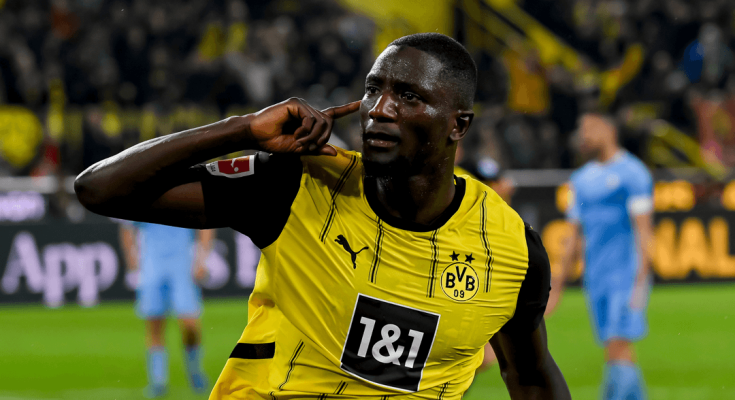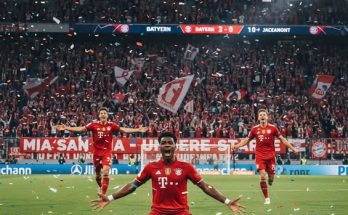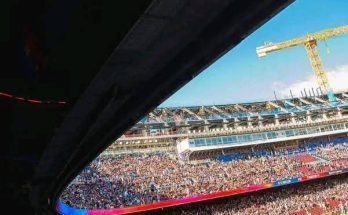In recent days, Borussia Dortmund has found itself at the center of a storm—one that has rocked the fanbase and ignited an emotional firestorm across social media, fan forums, and sports news outlets alike. The situation centers around two key figures at the club: head coach Niko Kovac and star striker Serhou Guirassy. According to increasingly heated speculation and unconfirmed reports, both men have allegedly demanded significant pay raises, with threats of walking away from the club if their terms are not met. While the details remain murky and no official club statement has confirmed such ultimatums, the fan reaction has already reached a fever pitch, and the story is taking on a life of its own. Whether the rumors are fully accurate or merely exaggerated versions of contractual negotiations behind closed doors, one thing is clear: Dortmund is facing a defining moment that could impact the trajectory of their season, their squad stability, and the unity of the entire organization.
Serhou Guirassy has been a revelation since arriving at Dortmund, delivering critical goals and becoming an indispensable figure in the club’s attacking setup. The Guinean forward’s blistering form has made him a fan favorite, and some would argue, the single most important player in the squad. His clinical finishing, tactical awareness, and physical presence have added a much-needed edge to Dortmund’s front line. Unsurprisingly, as his stock has risen, so too have expectations—both his own and those around him. It is not unusual for high-performing players to seek revised terms, especially when their current deal does not reflect their elevated status. Guirassy’s current contract, reportedly finalized on favorable terms for the club, may now be under review in light of his performances and outside interest. From a business perspective, his camp might see now as the perfect time to apply pressure.
On the other side of the same coin is Niko Kovac, a manager known for his intensity, tactical discipline, and unflinching demands for professionalism. Having taken over the Dortmund reins with a long-term project in mind, Kovac has started to make his mark. His emphasis on structure and accountability has led to a visible improvement in the team’s cohesion, particularly on the defensive side. However, the flip side of a results-driven mentality is that success breeds expectation. If Kovac has indeed joined Guirassy in pushing for a raise, the timing may appear suspicious to some. Just as the team is beginning to find rhythm, the idea of a contract standoff could derail the momentum he has worked so hard to build. For critics, the notion that a head coach would leverage mid-season performance for financial gain paints an image of opportunism. For supporters, it may simply reflect a coach who knows his worth in a volatile industry.
Regardless of how accurate the rumors are, the fanbase has responded with intense division. Online communities are ablaze with clashing opinions. Some supporters are furious, denouncing both men for prioritizing personal gain over club loyalty. “No one is bigger than the badge,” one popular comment read. “You don’t negotiate with ultimatums,” another fan declared. These sentiments reflect a broader frustration with modern football’s commercialization, where players and coaches are often seen as mercenaries rather than loyal contributors. Others, however, have offered a more sympathetic view. “When you perform, you deserve to be compensated,” wrote one user. “If we want to keep talent, we need to act like a big club.” This opposing camp argues that Dortmund has long struggled to retain top-tier talent, often losing stars to clubs willing to pay market rates. From this perspective, not rewarding Guirassy or Kovac could send the wrong message to the dressing room and potential signings.
Behind the scenes, the club’s leadership finds itself in an increasingly precarious position. Financial constraints are always a consideration, particularly for a club like Dortmund that must balance ambition with fiscal responsibility. Having spent heavily in the summer transfer window and invested in youth development and infrastructure, there may be little room left for sudden wage inflation. At the same time, allowing discontent to fester within key personnel could pose an even greater risk. If Guirassy begins to feel undervalued, it might affect his morale and performance. If Kovac senses that the club is not backing him with the resources or recognition he seeks, that disillusionment could translate into internal friction or even a premature departure. Football history is littered with stories of clubs unraveling from within due to ego clashes, mismanaged negotiations, and broken promises.
For now, official silence is only fueling the speculation. Neither the club nor the individuals involved have made public statements addressing the situation. This strategic quiet could suggest ongoing negotiations or, more cynically, damage control. The media, naturally, has pounced on the uncertainty, with pundits dissecting every sideline gesture and press conference quote for hidden meaning. Guirassy’s recent muted goal celebration was interpreted by some as a silent protest. Kovac’s curt responses to questions about the future have only deepened the mystery. Until something concrete emerges, the narrative will continue to be shaped by leaks, speculation, and emotionally charged fan reactions.
In such a tense atmosphere, the role of leadership becomes paramount. Dortmund’s executives must tread carefully, weighing short-term disruption against long-term planning. If the club caves too easily to wage demands, it risks setting a precedent that future players and coaches could exploit. If it resists entirely, it could alienate two of the most important figures in the current setup. A potential middle ground may involve performance-based incentives or a tiered bonus system—allowing the club to maintain its wage structure while still rewarding excellence. This kind of compromise has worked in similar cases at other clubs, but it requires all parties to negotiate in good faith and resist the temptation to posture for public sympathy.
This episode also reveals something deeper about modern football’s emotional ecosystem. The relationship between clubs, players, coaches, and fans is no longer static or one-directional. Social media amplifies every rumor, inflames every debate, and blurs the line between fact and fiction. For fans, it becomes difficult to discern who is acting in the club’s best interest. Are Guirassy and Kovac simply protecting their value in a cutthroat industry, or are they destabilizing the team’s unity for personal gain? Likewise, is Dortmund’s board acting prudently, or being short-sighted by not safeguarding its most valuable assets? There are no easy answers—only interpretations, and they vary widely depending on perspective.
As the dust continues to swirl, one truth remains: timing is everything. Dortmund is in the middle of a crucial campaign. The Bundesliga title may be a stretch, but European qualification, domestic cup progress, and squad development are all in play. The last thing the club needs is a drawn-out drama involving its manager and star striker. In the best-case scenario, this episode ends quietly, with renegotiated contracts, renewed focus, and a united front. In the worst-case scenario, it leads to a breakdown in relationships, mid-season instability, and a loss of momentum that could damage the club’s progress for years to come. Only time—and a few behind-the-scenes decisions—will tell.



